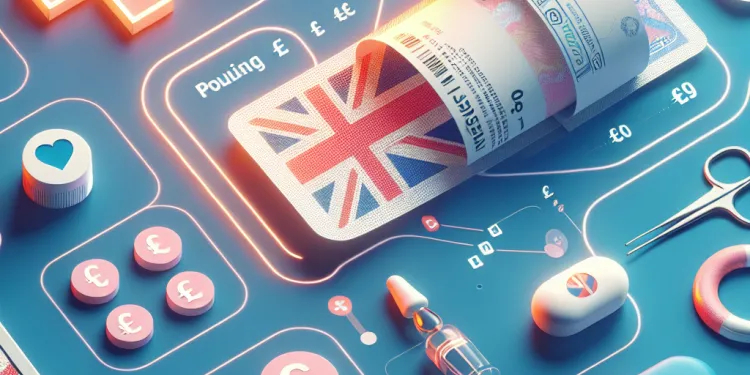
Find Help
More Items From Ergsy search
-

Are GLP-1 medications injectable?
Relevance: 100%
-
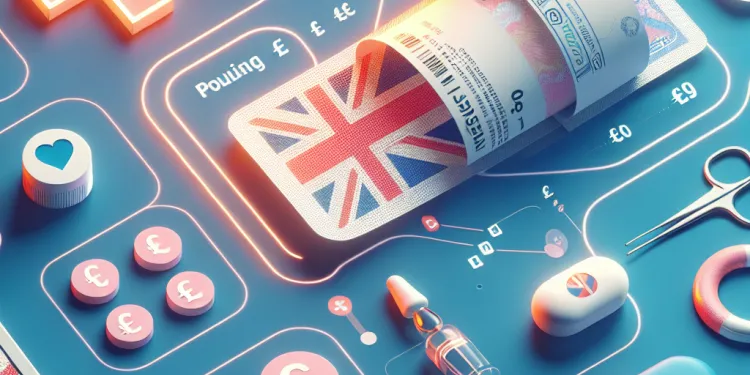
Can GLP-1 be used as a medication?
Relevance: 95%
-
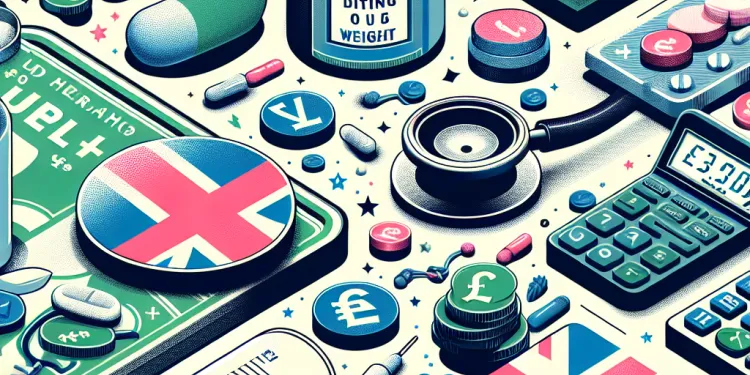
Do GLP-1 medications affect weight?
Relevance: 95%
-
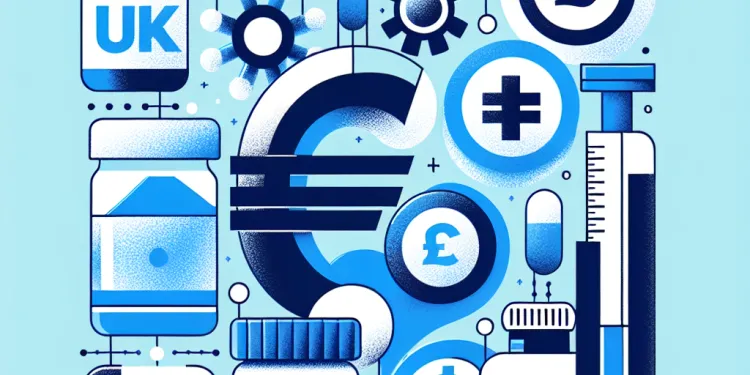
Are there any GLP-1 medications that are taken orally?
Relevance: 89%
-
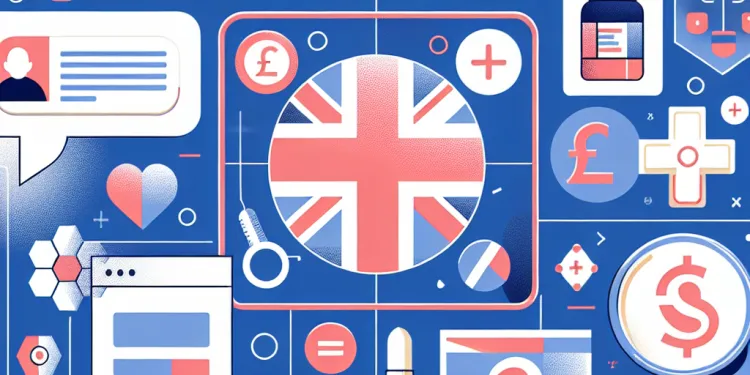
Are there any common side effects of GLP-1 medications?
Relevance: 87%
-

What is GLP-1?
Relevance: 78%
-

What is the half-life of GLP-1?
Relevance: 71%
-

What does GLP-1 stand for?
Relevance: 71%
-

Is GLP-1 naturally occurring?
Relevance: 70%
-
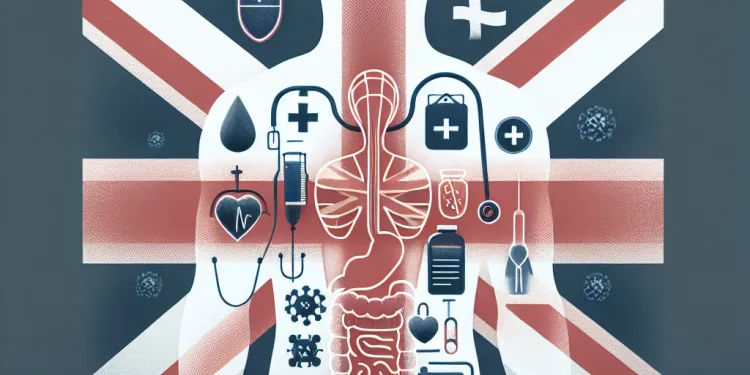
Where is GLP-1 produced in the body?
Relevance: 69%
-

Can GLP-1 levels be measured?
Relevance: 68%
-

How do GLP-1 receptor agonists work?
Relevance: 68%
-

How does GLP-1 affect appetite?
Relevance: 67%
-
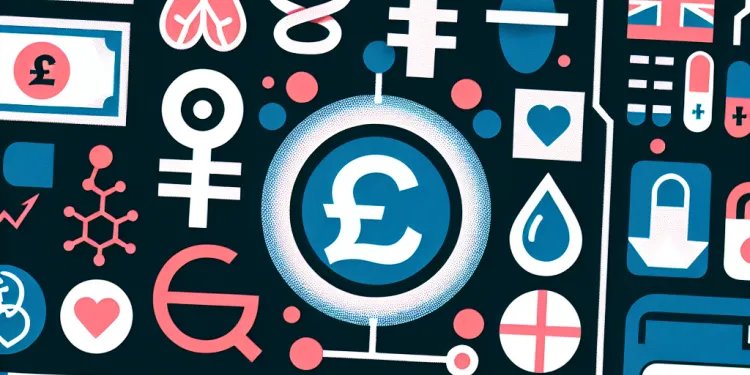
Is GLP-1 related to any other hormones?
Relevance: 66%
-

What is the connection between GLP-1 and insulin?
Relevance: 65%
-
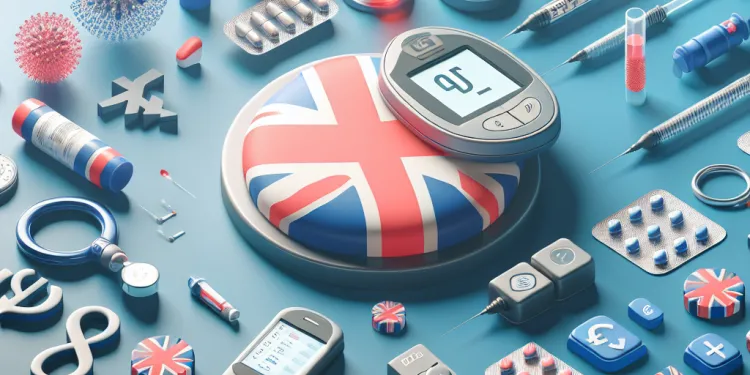
What role does GLP-1 play in diabetes management?
Relevance: 63%
-

What impact does GLP-1 have on glucose metabolism?
Relevance: 61%
-

Are there any dietary factors that influence GLP-1 secretion?
Relevance: 61%
-
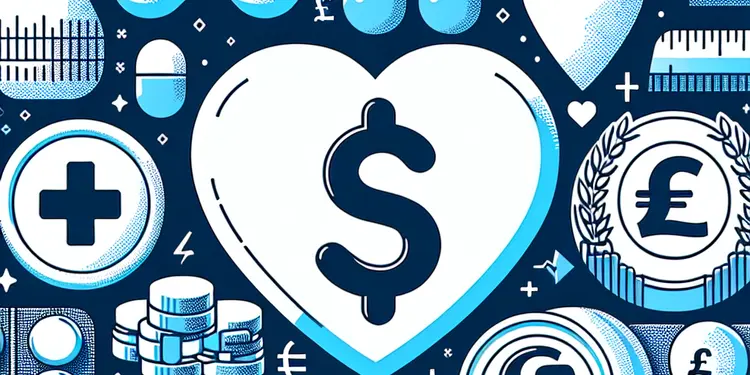
Can diabetes medications also help reduce heart attack risk?
Relevance: 50%
-
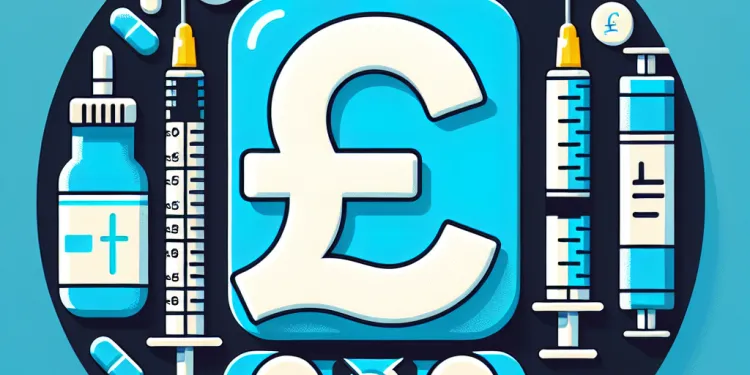
Can I take Ozempic with other diabetes medications?
Relevance: 47%
-
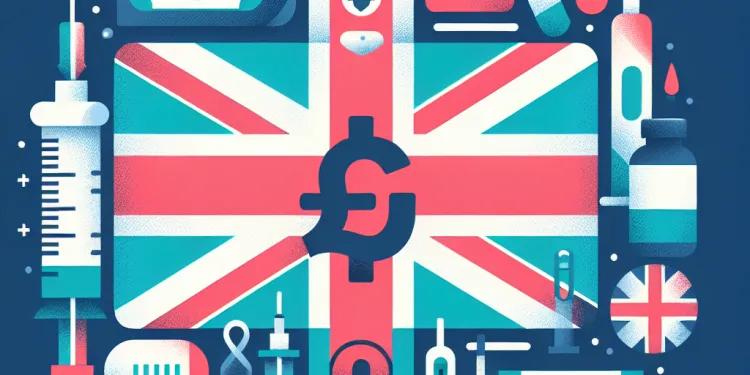
Can GLP-1 be used for type 1 diabetes?
Relevance: 47%
-
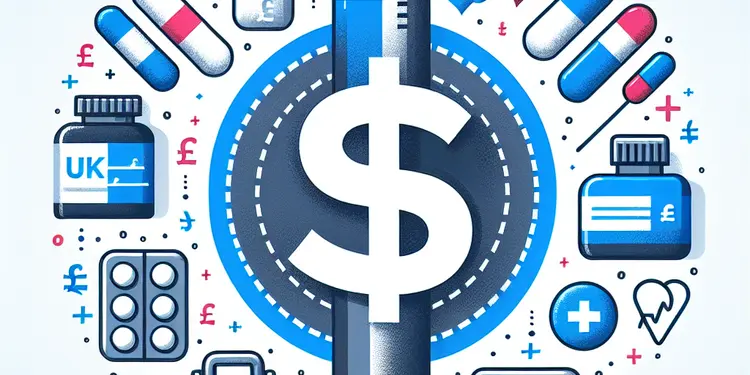
Do weight loss jabs interact with other medications?
Relevance: 39%
-

Can Wegovy be taken with other medications?
Relevance: 39%
-
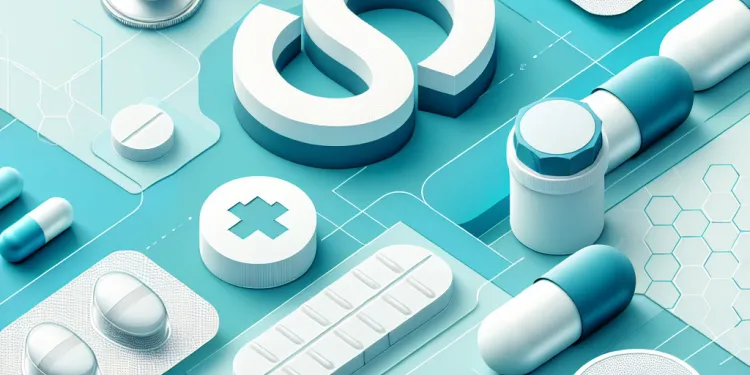
Can Ozempic be used in conjunction with other weight-loss medications?
Relevance: 37%
-
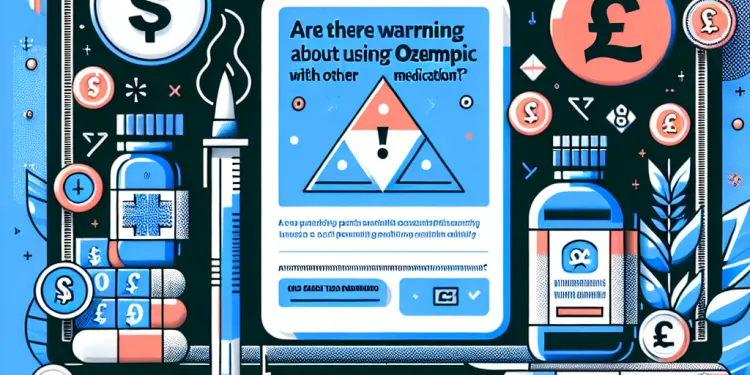
Are there warnings about using Ozempic with other medications?
Relevance: 35%
-

Is Wegovy similar to other weight loss drugs?
Relevance: 33%
-

What are incretins?
Relevance: 33%
-

Can Wegovy tablets be taken with other medications?
Relevance: 33%
-

Do chiropractors prescribe medications?
Relevance: 32%
-

What is the active ingredient in Mounjaro?
Relevance: 32%
-

How does Mounjaro work?
Relevance: 32%
-
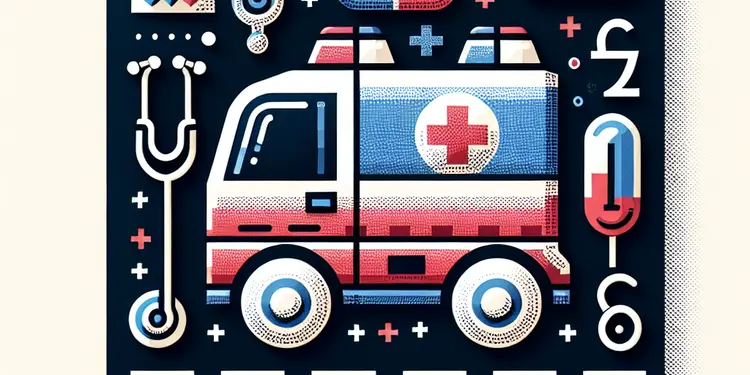
Is hypotony a medical emergency?
Relevance: 31%
-
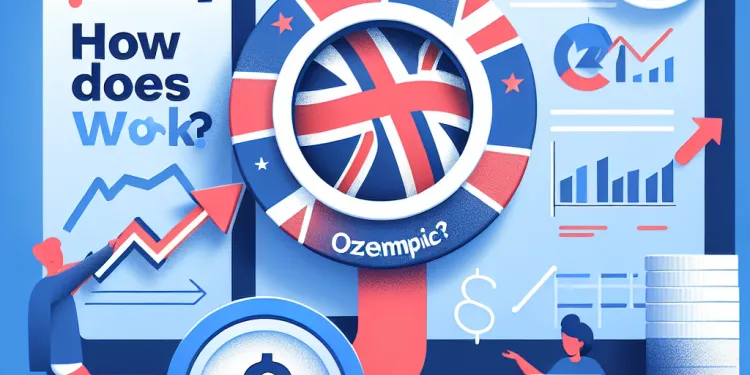
How does Ozempic work?
Relevance: 30%
-
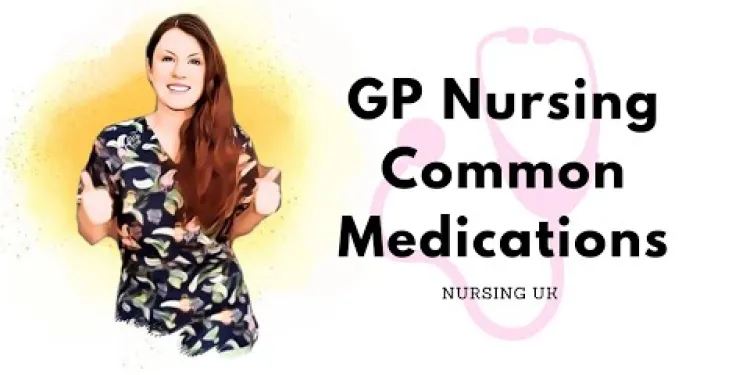
GP Nursing Most Common Medications UK.
Relevance: 30%
-
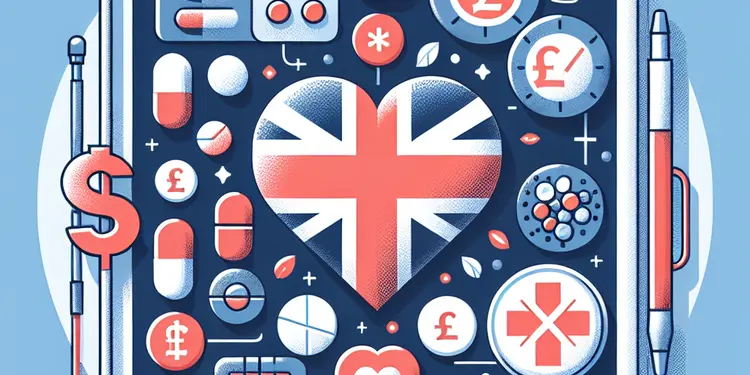
Is medication effective for health-related anxiety?
Relevance: 30%
-
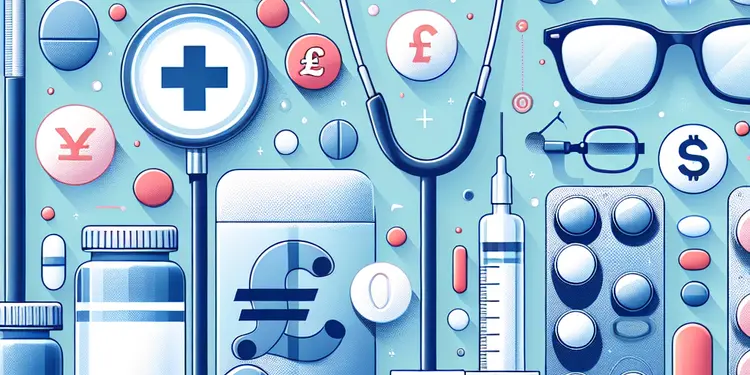
Do certain medications contribute to hypotony?
Relevance: 30%
-

Can CBD interact with medications?
Relevance: 30%
-

What are systemic medications for psoriasis?
Relevance: 30%
-
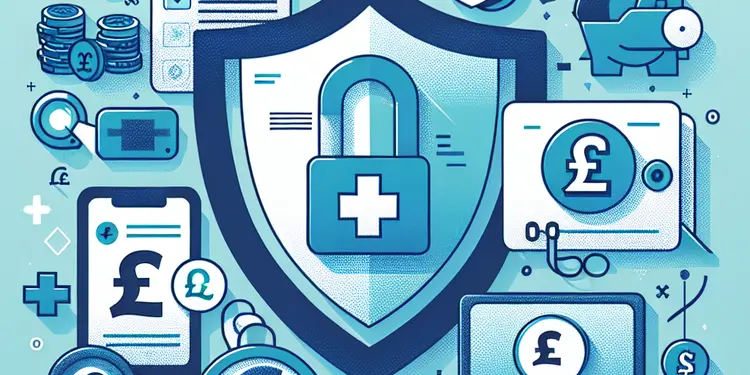
Are there privacy protections for my medical records?
Relevance: 30%
-
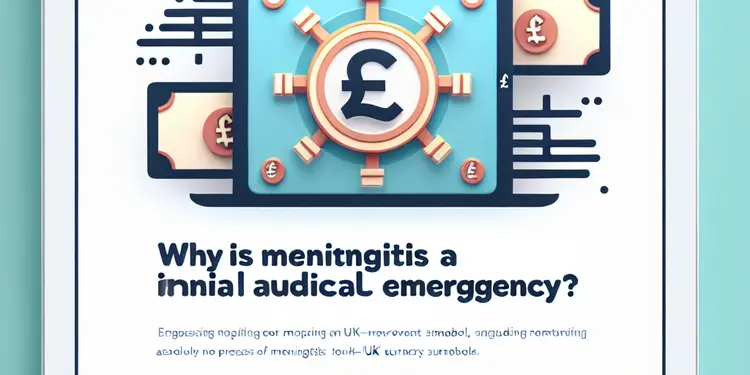
Why is meningitis a medical emergency?
Relevance: 29%
Understanding GLP-1
GLP-1, or glucagon-like peptide-1, is a hormone that plays a critical role in managing blood sugar levels in the human body. Naturally produced in the intestine, GLP-1 stimulates insulin secretion and inhibits glucagon release, which helps lower blood glucose levels. GLP-1 also slows stomach emptying and promotes satiety, the feeling of fullness after eating.
GLP-1 as a Medication
The therapeutic potential of GLP-1 has been harnessed in the form of medications used primarily for type 2 diabetes and obesity. GLP-1 receptor agonists are a class of drugs that mimic the action of the natural hormone, providing similar benefits. These medications include well-known brands such as liraglutide (Victoza, Saxenda), semaglutide (Ozempic, Wegovy), and dulaglutide (Trulicity).
Benefits for Type 2 Diabetes
In the management of type 2 diabetes, GLP-1 receptor agonists help to control blood sugar levels by enhancing insulin secretion and suppressing glucagon production. These medications have the added benefit of supporting weight loss and reducing the risk of hypoglycaemia, a common concern for diabetes patients. Clinical trials have also shown that some GLP-1 medications may reduce cardiovascular risks, which is crucial for diabetic patients who are at higher risk of cardiovascular diseases.
Role in Weight Management
Beyond diabetes management, GLP-1 medications are gaining recognition for aiding weight loss in individuals with obesity. By enhancing feelings of fullness and reducing appetite, these drugs support sustainable weight loss. For instance, liraglutide, under the brand name Saxenda, is approved for weight management in the UK and offers an alternative to traditional weight loss surgeries or other pharmacological treatments.
Considerations and Side Effects
While GLP-1 medications offer promising benefits, they may also come with side effects such as nausea, vomiting, and diarrhoea, which are often dose-dependent and tend to decrease over time. It's crucial for patients to discuss potential benefits and risks with their healthcare provider. In the UK, these medications are generally available via prescription, and their use may be recommended as part of a comprehensive treatment plan.
Conclusion
In summary, GLP-1 can indeed be used as a medication, offering significant benefits for managing type 2 diabetes and supporting weight loss. However, like all medications, they must be used under medical guidance to balance benefits with potential side effects. As research continues, GLP-1 receptor agonists may become an increasingly important tool in the management of metabolic disorders.
What is GLP-1?
GLP-1 is a hormone. Hormones are chemicals that your body makes. GLP-1 helps control how much sugar is in your blood. It is made in your tummy. GLP-1 makes the body release insulin, which lowers blood sugar. It also makes you feel full after eating.
GLP-1 As Medicine
GLP-1 can be made into medicines. These medicines help people with type 2 diabetes and obesity. The medicines act like GLP-1 in your body. Some names of these medicines are Victoza, Saxenda, Ozempic, Wegovy, and Trulicity.
How GLP-1 Helps with Diabetes
GLP-1 medicines help people with type 2 diabetes. They help control blood sugar. They do this by helping the body make more insulin. They also help with losing weight, which is good for people with diabetes. Some of these medicines can also help keep the heart healthy.
GLP-1 and Weight Loss
GLP-1 medicines can help people lose weight. They make you feel full and eat less. Saxenda is one of the medicines used for weight loss. It is used in the UK to help people lose weight instead of having surgery.
Things to Know About GLP-1 Medicines
GLP-1 medicines can have side effects. Some people feel sick, throw up, or have diarrhea. These side effects usually get better with time. Talk to your doctor about what is good for you. You need a prescription from a doctor to get these medicines in the UK.
Conclusion
GLP-1 can be used as medicine. It helps with diabetes and weight loss. But, it is important to use it with a doctor's help to make sure it is safe. As science learns more, these medicines might help even more with health problems.
Frequently Asked Questions
What is GLP-1?
GLP-1 (Glucagon-like peptide-1) is a hormone involved in the regulation of blood sugar levels by enhancing insulin secretion and inhibiting glucagon release.
Can GLP-1 be used as a medication?
Yes, GLP-1 receptor agonists are used as medications to manage type 2 diabetes and have been shown to aid in weight loss.
What are GLP-1 receptor agonists?
GLP-1 receptor agonists are medications that mimic the action of the GLP-1 hormone to stimulate insulin secretion in response to meals.
How do GLP-1 medications help with diabetes?
GLP-1 medications help by enhancing insulin secretion, reducing glucagon levels, slowing gastric emptying, and promoting satiety, which leads to better blood glucose control.
Are there any common GLP-1 receptor agonists?
Yes, common GLP-1 receptor agonists include medications such as exenatide, liraglutide, dulaglutide, semaglutide, and albiglutide.
Can GLP-1 agonists aid in weight loss?
Yes, GLP-1 agonists can aid in weight loss by increasing feelings of fullness and reducing calorie intake, which is beneficial for overweight or obese individuals with type 2 diabetes.
What are the side effects of GLP-1 medications?
Common side effects include nausea, vomiting, diarrhea, constipation, and potential risk for pancreatitis in some cases.
Is GLP-1 therapy suitable for all diabetes patients?
GLP-1 therapy is commonly prescribed for patients with type 2 diabetes, but it may not be suitable for everyone, such as those with a history of pancreatitis or certain gastrointestinal diseases.
How are GLP-1 medications administered?
GLP-1 medications are usually administered via subcutaneous injection, either daily or weekly, depending on the specific medication.
Do GLP-1 medications interact with other drugs?
GLP-1 medications can interact with other drugs, and it is important to review all medications with a healthcare provider to avoid potential interactions.
Are GLP-1 medications safe during pregnancy?
The safety of GLP-1 medications during pregnancy is not well established, and they are generally not recommended for pregnant women with diabetes.
Can GLP-1 medications be used for type 1 diabetes?
GLP-1 medications are not typically used for type 1 diabetes as their primary mechanism requires functional beta cells, which are lacking in type 1 diabetes.
How effective are GLP-1 medications in controlling blood sugar?
GLP-1 medications are effective in improving glycemic control, leading to significant reductions in HbA1c levels for many patients with type 2 diabetes.
Do GLP-1 medications have cardiovascular benefits?
Some GLP-1 medications have shown cardiovascular benefits, including a reduction in major adverse cardiovascular events in patients with type 2 diabetes at high cardiovascular risk.
Can GLP-1 medications be combined with insulin?
Yes, GLP-1 medications can be used in combination with insulin, but close monitoring is necessary to adjust insulin doses and minimize the risk of hypoglycemia.
Is there a risk of hypoglycemia with GLP-1 medications?
The risk of hypoglycemia with GLP-1 medications is generally low, especially when not used with insulin or sulfonylureas.
What is the impact of GLP-1 on satiety?
GLP-1 enhances satiety by acting on the central nervous system, leading to reduced appetite and food intake.
Are there any long-term concerns with GLP-1 therapy?
Long-term concerns include potential thyroid cancer risks, particularly medullary thyroid carcinoma, and regular monitoring is recommended.
Can GLP-1 medications be used in adolescents?
The use of GLP-1 medications in adolescents is not extensively studied, and their use should be evaluated on a case-by-case basis with healthcare providers.
What should patients consider before starting GLP-1 therapy?
Patients should consider the potential benefits and risks, discuss their medical history with a healthcare provider, and understand how to self-administer the medication if required.
What is GLP-1?
GLP-1 is something your body makes to help you feel full after eating. It also helps control blood sugar. It is important for keeping your body healthy.
Helpful tools: You can use simple picture books or videos to learn more about how the body works.
GLP-1 is a hormone. A hormone is something in our body that helps with important jobs. GLP-1 helps to manage the sugar in our blood. It does this by helping our body to use insulin better. Insulin is like a key that helps sugar go into our cells, so we have energy. GLP-1 also stops another hormone called glucagon from releasing too much sugar into our blood.
Can doctors use GLP-1 as medicine?
Yes, doctors use special medicine to help people with type 2 diabetes. This medicine can also help people lose weight.
What are GLP-1 receptor agonists?
GLP-1 receptor agonists are medicines. They help control blood sugar. People with diabetes might use them.
These medicines work with your body's insulin. Insulin helps move sugar from your blood to your cells. This gives you energy.
If you need more help, you can:
- Ask a doctor or nurse.
- Use pictures or videos to understand better.
GLP-1 receptor agonists are medicines. They work like a hormone in your body called GLP-1. These medicines help your body make insulin when you eat.
If you have trouble reading, you can try using tools like text-to-speech apps. These apps can read the text out loud for you. You can also ask someone to explain the words to you.
How do GLP-1 medications help with diabetes?
GLP-1 medications are special medicines for people with diabetes.
These medicines help your body use sugar better.
They can help lower your blood sugar levels.
They also help your body make more insulin after you eat.
This can keep your blood sugar from getting too high.
If you find reading hard, try using tools like audiobooks or apps that read text out loud.
GLP-1 medicines help you in a few ways. They help your body make more insulin, lower certain hormone levels, slow down how your stomach empties, and make you feel full. This helps keep your blood sugar under control.
What are some common GLP-1 receptor agonists?
Here are some medicines that work like GLP-1:
- Exenatide
- Liraglutide
- Saxenda
- Bydureon
These medicines help control blood sugar. They might be used to treat diabetes.
Here are some tips to help understand more:
- Ask a doctor to explain what these medicines do.
- Look at pictures or videos about how they work.
- Write down questions you have and ask someone for help.
Yes, there are some medicines called GLP-1 receptor agonists. These include exenatide, liraglutide, dulaglutide, semaglutide, and albiglutide.
If you find it hard to understand medicine names, ask a doctor or nurse to help you say them. You can also use a dictionary to look up tricky words.
Can GLP-1 Medicines Help You Lose Weight?
Some medicines called GLP-1 can help people lose weight. These medicines tell the body to feel less hungry and to burn more energy.
If you are thinking about using GLP-1 medicines, talk to a doctor or nurse. They can give you good advice.
Using GLP-1 medicines is not the only way to lose weight. Eating healthy food and exercising also help.
For support, you can use tools like talking scales or food pictures. These make keeping track of your food and weight easier.
Yes, GLP-1 agonists can help people lose weight. They make you feel full so you eat less. This is good for people who are overweight or have too much weight and also have type 2 diabetes.
What can happen when you take GLP-1 medicine?
Some people might feel sick, throw up, or have an upset tummy. They might also have trouble going to the bathroom, either too much or not enough. In some cases, it might affect the pancreas, which is a part of the body that helps with digestion.
Can all people with diabetes use GLP-1 medicine?
Doctors often give GLP-1 medicine to help people with type 2 diabetes. But, it is not safe for everyone. It is not good for people who had problems with their pancreas before or have some tummy illnesses.
How do you take GLP-1 medicines?
GLP-1 medicines are special medicines that help with blood sugar. You can take them in two ways:
- Injection: Use a small needle to put the medicine under your skin. Some people do this once a week.
- Pills: You can swallow a pill with water. This can be once a day.
Remember, a doctor or nurse can show you how to use these medicines safely.
If reading is hard, ask someone you trust to help you understand this information.
GLP-1 medicines are given using a small needle, just under the skin. You might need to take them every day or every week. This depends on which medicine you have.
Do GLP-1 medicines mix with other medicines?
GLP-1 medicines are a type of drug. Sometimes, they can change how other medicines work in your body.
If you take GLP-1 medicines, tell your doctor about all the other medicines you use. This makes sure everything you take is safe together.
To help understand this, you can:
- Use simple charts to keep track of your medicines.
- Ask your doctor or pharmacist to explain things clearly.
- Use pictures to show how the medicines work together.
GLP-1 medicine can mix with other medicines. It is important to show all your medicine to a doctor or nurse to make sure they are safe together.
Can you take GLP-1 medicine when you are having a baby?
We do not know if GLP-1 medicines are safe for pregnant women. Doctors usually say not to use them if you have diabetes and are pregnant.
Can people with type 1 diabetes use GLP-1 medicine?
GLP-1 medicine is not usually used for type 1 diabetes. This is because type 1 diabetes doesn’t have working beta cells, and GLP-1 needs these cells to work.
Do GLP-1 medicines help control blood sugar well?
GLP-1 medicines help a lot with blood sugar levels. They can make a big difference for people with type 2 diabetes. These medicines can lower the HbA1c level, which is a measure of how well someone's blood sugar is managed over time.
Do GLP-1 Medicines Help the Heart?
GLP-1 medicines are drugs that some people take when they are sick with diabetes.
They might also help keep your heart healthy.
If you want to know more, ask your doctor.
You can also use tools like pictures and videos to help understand better.
Some GLP-1 medicines are good for the heart. They can help people with type 2 diabetes who might have heart problems.
Can you take GLP-1 medicine with insulin?
Yes, you can take GLP-1 medicine with insulin. But it is important to check with your doctor first. They will help you know what's safe for you.
If you find reading difficult, you can use things like:
- Pictures to help understand
- Apps that read text aloud
- Simple reading guides
Yes, you can use GLP-1 medicine with insulin. But you need to be careful. A doctor should check your insulin amount often to make sure that your blood sugar does not get too low. This can make you feel weak and dizzy.
Do GLP-1 medicines make your blood sugar too low?
GLP-1 medicines usually do not cause low blood sugar. This is true if you are not taking insulin or sulfonylureas with them.
How does GLP-1 affect feeling full?
GLP-1 is something in your body.
It helps you feel full after eating.
When you feel full, you don't want to eat more.
Using pictures or videos can help you understand better.
GLP-1 helps you feel full. It works on your brain to make you less hungry, so you eat less.
Do we need to worry about GLP-1 medicine in the future?
There are worries about getting thyroid cancer in the future. This can happen in the thyroid gland. It's important to have regular check-ups with a doctor to stay safe.
Can kids and teens use GLP-1 medicine?
We do not know a lot about using GLP-1 medicines in teenagers. Each teenager should talk to their doctor to see if these medicines are right for them.
Things to Think About Before Starting GLP-1 Treatment
If you're thinking about starting a new medicine called GLP-1, here are some things to keep in mind:
- Talk to Your Doctor: Ask your doctor or nurse if GLP-1 is right for you. They can tell you how it works and what it does.
- Know the Side Effects: All medicines can have side effects. Ask what might happen and how to handle them.
- Medicines You're Taking: Tell your doctor about any other pills or treatments you use. This helps make sure they all work well together.
- Healthy Habits: Eating good food and moving your body helps the medicine work better.
- Help From Others: It's good to have friends, family, or a support group to talk to about your treatment.
Remember, it’s always okay to ask questions if you're not sure. Your doctor is there to help you.
If you need to take medicine, talk to your doctor. They can tell you the good and bad things about it. Share your health history with them too. It is important to know how to take the medicine by yourself if you need to.
Useful Links
This website offers general information and is not a substitute for professional advice.
Always seek guidance from qualified professionals.
If you have any medical concerns or need urgent help, contact a healthcare professional or emergency services immediately.
Some of this content was generated with AI assistance. We’ve done our best to keep it accurate, helpful, and human-friendly.
- Ergsy carfully checks the information in the videos we provide here.
- Videos shown by Youtube after a video has completed, have NOT been reviewed by ERGSY.
- To view, click the arrow in centre of video.
- Most of the videos you find here will have subtitles and/or closed captions available.
- You may need to turn these on, and choose your preferred language.
- Go to the video you'd like to watch.
- If closed captions (CC) are available, settings will be visible on the bottom right of the video player.
- To turn on Captions, click settings .
- To turn off Captions, click settings again.
More Items From Ergsy search
-

Are GLP-1 medications injectable?
Relevance: 100%
-

Can GLP-1 be used as a medication?
Relevance: 95%
-

Do GLP-1 medications affect weight?
Relevance: 95%
-

Are there any GLP-1 medications that are taken orally?
Relevance: 89%
-

Are there any common side effects of GLP-1 medications?
Relevance: 87%
-

What is GLP-1?
Relevance: 78%
-

What is the half-life of GLP-1?
Relevance: 71%
-

What does GLP-1 stand for?
Relevance: 71%
-

Is GLP-1 naturally occurring?
Relevance: 70%
-

Where is GLP-1 produced in the body?
Relevance: 69%
-

Can GLP-1 levels be measured?
Relevance: 68%
-

How do GLP-1 receptor agonists work?
Relevance: 68%
-

How does GLP-1 affect appetite?
Relevance: 67%
-

Is GLP-1 related to any other hormones?
Relevance: 66%
-

What is the connection between GLP-1 and insulin?
Relevance: 65%
-

What role does GLP-1 play in diabetes management?
Relevance: 63%
-

What impact does GLP-1 have on glucose metabolism?
Relevance: 61%
-

Are there any dietary factors that influence GLP-1 secretion?
Relevance: 61%
-

Can diabetes medications also help reduce heart attack risk?
Relevance: 50%
-

Can I take Ozempic with other diabetes medications?
Relevance: 47%
-

Can GLP-1 be used for type 1 diabetes?
Relevance: 47%
-

Do weight loss jabs interact with other medications?
Relevance: 39%
-

Can Wegovy be taken with other medications?
Relevance: 39%
-

Can Ozempic be used in conjunction with other weight-loss medications?
Relevance: 37%
-

Are there warnings about using Ozempic with other medications?
Relevance: 35%
-

Is Wegovy similar to other weight loss drugs?
Relevance: 33%
-

What are incretins?
Relevance: 33%
-

Can Wegovy tablets be taken with other medications?
Relevance: 33%
-

Do chiropractors prescribe medications?
Relevance: 32%
-

What is the active ingredient in Mounjaro?
Relevance: 32%
-

How does Mounjaro work?
Relevance: 32%
-

Is hypotony a medical emergency?
Relevance: 31%
-

How does Ozempic work?
Relevance: 30%
-

GP Nursing Most Common Medications UK.
Relevance: 30%
-

Is medication effective for health-related anxiety?
Relevance: 30%
-

Do certain medications contribute to hypotony?
Relevance: 30%
-

Can CBD interact with medications?
Relevance: 30%
-

What are systemic medications for psoriasis?
Relevance: 30%
-

Are there privacy protections for my medical records?
Relevance: 30%
-

Why is meningitis a medical emergency?
Relevance: 29%


